Supreme Court Ruling On GPS Use By Police: George Orwell Rising
By Ron Steinman
In November, the Supreme Court will hear arguments that some legal experts are calling the most important Fourth Amendment case in years. It involves the use by police who placed an unauthorized GPS device on a suspect’s car to track said suspect’s movements. The Fourth Amendment to the Constitution prohibits unreasonable searches and seizure of our “persons, houses, papers and effects.” The clear question before the Supreme Court is “ do citizens have a reasonable expectation of privacy as they move along public streets and highways.” Do not be too sure that the law will be on the side of the innocent. Interpretation is everything. For some judges, because of the ubiquity of new GPS technology, that fundamental constitutional idea in the Fourth Amendment, so direct and appealingly simple, at least on the surface, and well before the onslaught of recent technology may cut deeply into what remains of our privacy.
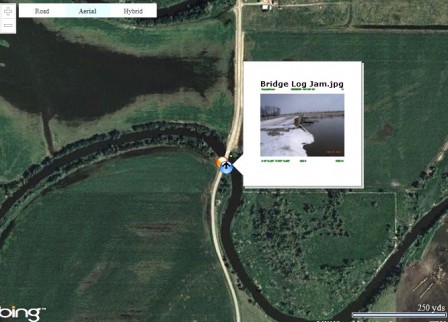 Once again, our right to be anonymous is under attack. Other judges may not care how some use the GPS, as long as law enforcement has another tool that will help put criminals in jail. For years, some conservatives have been trying to upend the Fourth Amendment. It is one of the few areas where the strict constitutionalists are willing and ready to make changes. Now technology may finally do it.
Once again, our right to be anonymous is under attack. Other judges may not care how some use the GPS, as long as law enforcement has another tool that will help put criminals in jail. For years, some conservatives have been trying to upend the Fourth Amendment. It is one of the few areas where the strict constitutionalists are willing and ready to make changes. Now technology may finally do it.
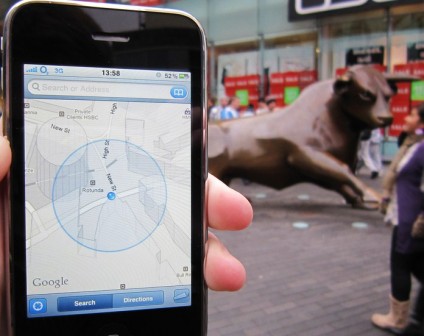 Everyone knows what GPS means. If not, you should. It is that remarkable device implanted in cars, boats, trains, what have you, that tracks your every move when you are on the move. If you are lost, GPS finds you and points you in the direction where you want to go. Called Global Positioning System, its best definition calls it “an accurate worldwide navigational and surveying facility based ion the reception of signals from an array of orbiting satellites in space.” It provides location and time information in all weather conditions. That is a mouthful. Law enforcement and who knows who else, especially with brilliant hackers everywhere, is using GPS to track the movements of what we have to believe are criminals and their associates. Are lawn mowers, snow blowers and baby strollers future candidates for GPS? You may think that is beside the point. It is not. It is exactly on point. A smart, determined operative can place a GPS anywhere. Now attaching a GPS to a vehicle of any kind, however, is legally questionable, especially as a warrant is rarely used. If GPS surveillance is to become the norm as it is in some states, at the very least we as citizens deserve to have the law observed. Another question is how long will the surveillance last? Is it for a few hours, a few days, weeks, months? Privacy is again under attack. George Orwell’s 1984 is a few years late, but it is already here.
Everyone knows what GPS means. If not, you should. It is that remarkable device implanted in cars, boats, trains, what have you, that tracks your every move when you are on the move. If you are lost, GPS finds you and points you in the direction where you want to go. Called Global Positioning System, its best definition calls it “an accurate worldwide navigational and surveying facility based ion the reception of signals from an array of orbiting satellites in space.” It provides location and time information in all weather conditions. That is a mouthful. Law enforcement and who knows who else, especially with brilliant hackers everywhere, is using GPS to track the movements of what we have to believe are criminals and their associates. Are lawn mowers, snow blowers and baby strollers future candidates for GPS? You may think that is beside the point. It is not. It is exactly on point. A smart, determined operative can place a GPS anywhere. Now attaching a GPS to a vehicle of any kind, however, is legally questionable, especially as a warrant is rarely used. If GPS surveillance is to become the norm as it is in some states, at the very least we as citizens deserve to have the law observed. Another question is how long will the surveillance last? Is it for a few hours, a few days, weeks, months? Privacy is again under attack. George Orwell’s 1984 is a few years late, but it is already here.
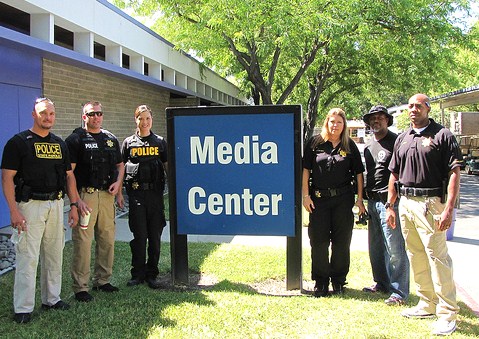 Recently I wrote about how cookies – what a wonderfully benign word – on the Internet capture more about our lives than we know or than we should want to give away. The world of commerce loves cookies. The possible abuse of the information they gather is beyond question. I wrote about algorithms whose creators bestow on them what appears to be minds of their own. Their originators use the neat excuse of an algorithm’s complexity to absolve them of any responsibility once these instruments are let loose in the innards of the Web, where no one can see what they are doing to an unsuspecting public. Now we are about to experience another move into the world of future technology that is changing our lives and could affect who we are, and how we go about our business. The world of the GPS is creeping quietly, but effectively, into our daily life. It is dangerous to privacy when using such a device is secretive and done in ways to protect the originator, not the citizen.
Recently I wrote about how cookies – what a wonderfully benign word – on the Internet capture more about our lives than we know or than we should want to give away. The world of commerce loves cookies. The possible abuse of the information they gather is beyond question. I wrote about algorithms whose creators bestow on them what appears to be minds of their own. Their originators use the neat excuse of an algorithm’s complexity to absolve them of any responsibility once these instruments are let loose in the innards of the Web, where no one can see what they are doing to an unsuspecting public. Now we are about to experience another move into the world of future technology that is changing our lives and could affect who we are, and how we go about our business. The world of the GPS is creeping quietly, but effectively, into our daily life. It is dangerous to privacy when using such a device is secretive and done in ways to protect the originator, not the citizen.
 There are already too many people and institutions that know more about me than I want anyone to know. Attaching a GPS device to my car or person, my bike or my child’s stroller, means that whoever manipulated the device to track me instead of giving me directions to my destination is on their way to cracking my personal DNA. One might say it is generational, that millennials, already the users and abusers of social media, care less about privacy than I do. That might be right. We inhabit different spheres of life. We will never meet and agree that an individual’s privacy is sacrosanct. I only ask that those of another generation respect who I am and allow me to protect my secrets as harmless to others and me as I know they are. At least to me. But I think that is a wish denied.
There are already too many people and institutions that know more about me than I want anyone to know. Attaching a GPS device to my car or person, my bike or my child’s stroller, means that whoever manipulated the device to track me instead of giving me directions to my destination is on their way to cracking my personal DNA. One might say it is generational, that millennials, already the users and abusers of social media, care less about privacy than I do. That might be right. We inhabit different spheres of life. We will never meet and agree that an individual’s privacy is sacrosanct. I only ask that those of another generation respect who I am and allow me to protect my secrets as harmless to others and me as I know they are. At least to me. But I think that is a wish denied.
Take the GPS battle one step further. There are chips implanted in pets to help find them if they are lost. There are chips implanted in wild animals for scientific research. Parents and educators are discussing placing chips in children to track them if the child gets lost or worse, is kidnapped. So far, mass implants are not in the offing. Who is to say they will not be in the future. Attaching an unwanted GPS device to a car, a boat, bikes, trains or planes is potentially a harbinger of things to come.
I am not an expert on the Constitution. I try instead to deal in common sense. How much of ourselves are we willing to give away for the sake of commerce and law enforcement? Though the Supreme Court will decide if applying a GPS device to the personal property of a person, or to the person him or herself is a violation of the Constitution as originally written. I believe it violates my rights and if asked, I am sure most people would agree. But I cannot be sure of even that.
Every day there is one more attack on what some consider the right to be left alone. As we move deeper and more swiftly into a world dominated by expertise that is beyond normal understanding, our right to be left alone is eroding while we watch helplessly, unable to do anything about it. I feel mugged by technology that I cannot control. By all odds, the assault on who we are will never end as long as the idea of creating something new dominates how a technical innovator without moral scruples thinks. Be assured, there will always be a new piece of software that will enable those who want to know everything about us to discover out inner lives by flicking a switch. My hope is that we will not go down without a fight. That fight is only beginning. Once the door is open, it may be impossible to close it. That is the reason that the protectors of our rights are pushing to deny the police, and thus anyone, the right to track all our movements with GPS or any other technology.
Editor’s Note: Ron Steinman is executive editor and a columnist for The Digital Journalist and The Digital Filmmaker. An award-winning producer for NBC news and NBC’s Today Show. He served as bureau chief in Saigon during the Vietnam war, and later as bureau chief in Hong Kong and London. At ABC News Productions, he produced documentaries for A&E, TLC, the History Chanel and Discovery. He is currently an independent documentary producer, director and writer through his company Douglas/Steinman Productions. He is the author of eight books, including “Inside Television’s First War: A Saigon Journal”, that details how NBC news covered the war in Vietnam. He is also a frequent contributor to News Junkie Post.
Related Articles

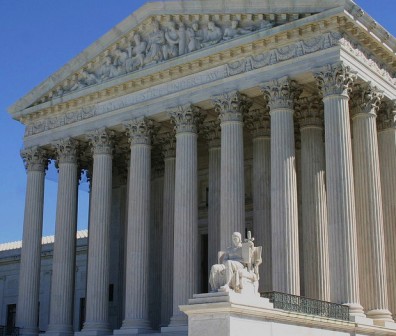
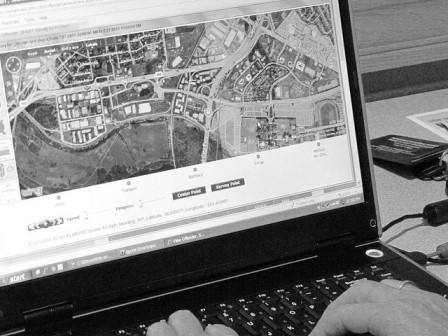











You must be logged in to post a comment Login